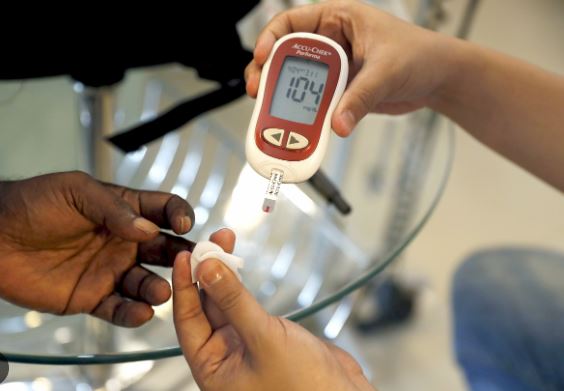Reducing consumption of processed foods a key strategy to combating diabetes risk -research

Diabetes is a significant contributor to blindness, kidney failure, heart attacks, strokes, and lower limb amputations.
A recent study published in The Lancet reveals that reducing the intake of ultra-processed foods can lower the risk of developing type 2 diabetes by 8 per cent. Conversely, consuming these foods is associated with a 17 per cent increased disease risk.
Ultra-processed foods are industrially manufactured products that contain few or no whole ingredients and often include a range of additives, such as preservatives, artificial flavours, colours, emulsifiers, and sweeteners. Designed for convenience and shelf stability, these foods can be appealing but pose significant health risks when consumed frequently.
More To Read
- Monthly injection helps severe asthma patients reduce or stop steroids - Lancet study
- How follow-up programmes bridge treatment gap in non-communicable diseases
- Study shows women under 50 face higher risk of colon growths from ultra-processed foods
- Why gestational diabetes is no longer a temporary pregnancy problem
- WHO issues first global guidelines on diabetes in pregnancy
- Convenient but dangerous: The hidden health risks of ultra-processed foods
Common examples include sugary drinks like sodas and energy drinks, snack foods like potato chips and cheese puffs, and fast foods like hamburgers and chicken nuggets. Processed meats, including hot dogs, deli meats, and packaged baked goods like cakes and cookies, also fall into this category.
Additionally, many breakfast cereals are high in sugar and contain artificial additives, while ready-to-eat meals and certain plant-based alternatives may also be ultra-processed.
Despite their accessibility and appeal, regular consumption of ultra-processed foods can lead to serious health issues, including obesity, heart disease, and type 2 diabetes.
The study conducted by researchers at University College London, in collaboration with other experts, adds to the evidence that higher consumption of ultra-processed foods is linked to an increased risk of developing type 2 diabetes. However, it also found that this risk can be mitigated by substituting ultra-processed foods with less processed options.
Researchers analysed the intake of ultra-processed foods and associated health outcomes for nearly 312,000 individuals across eight European countries.
"Ultra-processed foods often contain ingredients that you wouldn’t typically use in home cooking, including various additives and unconventional types of fats, carbohydrates, and proteins," said lead researcher Samuel Dicken, a clinical scientist.
The study followed participants for an average of 10.9 years, during which approximately 14,000 individuals developed type 2 diabetes.
It was found that each 10 per cent increase in ultra-processed food consumption correlated with a 17 per cent higher risk of developing the condition.
In contrast, replacing ultra-processed foods with less processed options was associated with a reduced risk. Specifically, substituting 10 per cent of ultra-processed foods with 10 per cent of minimally processed foods or culinary ingredients lowered diabetes risk by 6 per cent, while a similar substitution with processed foods reduced the risk by 8 per cent.
Dicken emphasised the significance of the study, stating, “What was significant about our study was we did what previous studies haven’t done to better understand ultra-processed foods and whether we should regulate them all.”
He concluded that adopting a less processed diet is beneficial for reducing the risk of type 2 diabetes.
With the growing prevalence of ultra-processed foods in urban areas, there is a significant health risk for many Kenyans.
In Kenya, over 2.1 million people are living with diabetes, yet only 40 per cent are receiving treatment. According to the Ministry of Health, around 750,000 individuals with diabetes are not on treatment due to high costs and limited access to care. Furthermore, 87 per cent of Kenyans are unaware of their blood sugar status.
According to the World Health Organisation (WHO), the number of people living with diabetes surged from 108 million in 1980 to 422 million in 2014, with prevalence rising more rapidly in low- and middle-income countries compared to high-income nations. Diabetes is a significant contributor to blindness, kidney failure, heart attacks, strokes, and lower limb amputations.
Between 2000 and 2019, diabetes mortality rates increased by 3 per cent across age groups. In 2019 alone, diabetes and kidney disease linked to diabetes accounted for an estimated 2 million deaths.
The WHO emphasises that preventing or delaying the onset of type 2 diabetes can be achieved through a healthy diet, regular physical activity, maintaining a healthy body weight, and avoiding tobacco use.
Additionally, diabetes can be managed, and its complications delayed or prevented with proper diet, exercise, medication, and regular screening and treatment for potential complications.
Top Stories Today











































